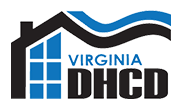Virginias are encouraged to get homes and children tested for lead
The National Lead Poisoning Prevention Week is aimed to increase lead poisoning prevention awareness in an effort to reduce children’s exposure to lead in their environment and prevent its health effects.
Any child can be exposed to lead, but some children are at higher risk. Low-income families and those who live in homes built before 1978 with original leaded paint are among those at highest risk. Testing blood levels is the best way to tell if a child has been exposed to lead poisoning and consulting with your healthcare provider.
“As we observe National Lead Poisoning Prevention Week, DHCD encourages Virginians to be proactive and engaged in lead poisoning prevention efforts,” said Bryan Horn, Director of Housing and Community Development. “Through programs like DHCD’s Lead Hazard Reduction Program, we can help eliminate childhood lead poisoning bolstering reporting, increasing home inspections and educating the public about the dangers and prevention of lead poisoning.”
DHCD’s Lead Hazard Reduction Program provides federal funding to administer lead remediation activities across Virginia. The program partners with local health departments, state agencies and providers to meet the needs of those that have been effected by lead poisoning. All eligible homes will receive a full lead inspection and risk assessment to determine the location and condition of the lead-based paint. Eligible participants include pre-1978 single family and multifamily housing, households at or below 80% area median income, and households with children under six years of age. Priority is given to children with elevated blood lead levels.
To apply for the program, email lhr@dhcd.virginia.gov for an initial eligibility screening. For more information about the Lead Hazard Reduction Program, visit https://www.dhcd.virginia.gov/lhr


